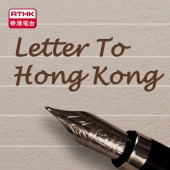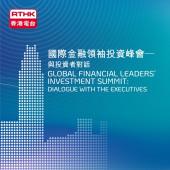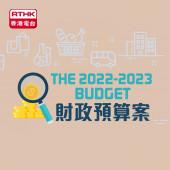 載入中 ...
載入中 ...
返回
Executive Councillor Ronny Tong
2018-10-21
What do you look for in a Policy Address? In Hong Kong, sadly, most media and so called commentators look for immediate pay-outs, or easy topics like perennial debates on political reform, or article 23; few will look for change of philosophy of governance, or visions of future of Hong Kong. Such is the quality of our media and commentators. So when I described the latest Policy Address from Carrie Lam, our Chief Executive, as a “historical address”, some people immediately sat up and asked, “Hey, why the high praise?”
To that question, let me say at once that “historical” is a neutral term. A historical event can be good as it can be bad. What the word “historical” seeks to convey is a significant change. In my view and in any event, the jury on whether the latest Policy Address is historically good or historically bad is still out. Pardon the pun, but whether it is a good Policy Address or a bad Policy Address is, I think, for history to judge in the time to come. But why do I call it a historical address? There are at least three answers.
First, right at the very beginning of her address, Carrie Lam said, “With our ample fiscal reserves, it is the Government’s responsibility to use the resources derived from the community for the good of the community, invest for the future, relieve people’s burdens and enable people from different walks of life to share the fruits of our economic growth.” That sentence there, in my view, signals a marked change not only in fiscal management philosophy but a change in the style of governance. Let us not forget all the previous administrations since the handover had treated the question of fiscal reserves differently. John Tsang, our last financial Secretary, who held our purse strings for well over 10 years, had said time and again during his reign that reserves were there “for a rainy day”; so much so that when he continuously under estimated our income, on average, over 50 or 60 billion every year, he would only recommend once-off pitiful handouts when Government was flooded with excess cash. In time, to the envy of most countries in the World, we have built up a staggering reserve of well over 1,000 billion, or over 24 months of government yearly expenditure. Carrie Lam’s address suggests that will no longer be the fiscal philosophy of this administration: she would not hesitate to dig into our reserves if and when needed, and in particular, if it is necessary to invest in the future of Hong Kong and to relieve the burden of Hong Kong people.
Secondly, in one sweep, Carrie Lam had done what successive administrations were unable or unwilling to do: to abolish the infamous set off of MPF payments and extend maternity leave to 14 weeks at the dismay of the business sector. True it is, this is done at great cost to the Government; we have to set aside 30 billion to subsidize employers. But the significance of this is not how it is done but why it is done. The Liberal Party head, Cheung Yu Yan put it best in LegCo, “This administration is leaning in favour of the labour sector”. This is another major departure. Since the handover, successive administrations had been repeatedly criticized as being leaning heavily in favour of the business sector, employers and developers to be more precise. This appears to be no longer the case with this administration.
Third but not least, there is the vision of “Lantau Tomorrow”. There had not been any major reclamation for the purpose of creating residential land since the handover. In fact, all government housing had stopped in the Donald Tsang administration which led to the current difficulties of acute shortage of government housing. “Lantau Tomorrow” represents a major new and bold initiative for the future development of Hong Kong for the next 20 to 30 years. A blueprint for the way forward if you like.
Yes, there are a lot of opposing voices, but none really supported by compelling reasons or facts. Most are just empty slogans based on misinformation. For example, it is said the project “Lantau Tomorrow” was too expensive and would deplete our reserves with no return. This is no further from the truth. Using the latest figures of the reclamation of the third runway of our airport, the cost of reclaiming land per square foot is about HK$1,000 to 1,200. This compares very favourably with the pay outs we have to make in resuming land in the New Territories which can range from about HK$1,200 to tens of thousands per square foot, not to mention we have to find alternative sites to relocate people and industries on “brown sites”. On top of that, we need to add, of course, infrastructure costs; but that is the case whether you are talking about “Lantau Tomorrow” or developing New Territories. In terms of time needed, development of North East Territory showed 10 years down the road and we are no nearer to clearing the first patch of land. As to return, anyone with some knowledge of the market will know that even with just 30% of the reclaimed land being for private residential purposes together with a new Commercial Center, the financial return at today’s prices without taking into account the economic benefits would easily far outweigh the investment.
But perhaps most importantly, without the constraint of existing planning limitations, we can build a better and more spacious community with better quality of life for Hong Kong people. We deserve that, don’t we? So reclamation on any view should not be dismissed out of hand as the opposition would have us believe.
What do we look for in a Policy Address? In my view, we should look for new direction and hope. Inevitably, new direction and hope are by definition controversial. Society needs to be consulted and debate on new ideas; but such consultation and debate should not be based on empty slogans and misinformation. Let us get down to the business of rational thinking and meaningful debates to get the most out of the latest Policy Address.
To that question, let me say at once that “historical” is a neutral term. A historical event can be good as it can be bad. What the word “historical” seeks to convey is a significant change. In my view and in any event, the jury on whether the latest Policy Address is historically good or historically bad is still out. Pardon the pun, but whether it is a good Policy Address or a bad Policy Address is, I think, for history to judge in the time to come. But why do I call it a historical address? There are at least three answers.
First, right at the very beginning of her address, Carrie Lam said, “With our ample fiscal reserves, it is the Government’s responsibility to use the resources derived from the community for the good of the community, invest for the future, relieve people’s burdens and enable people from different walks of life to share the fruits of our economic growth.” That sentence there, in my view, signals a marked change not only in fiscal management philosophy but a change in the style of governance. Let us not forget all the previous administrations since the handover had treated the question of fiscal reserves differently. John Tsang, our last financial Secretary, who held our purse strings for well over 10 years, had said time and again during his reign that reserves were there “for a rainy day”; so much so that when he continuously under estimated our income, on average, over 50 or 60 billion every year, he would only recommend once-off pitiful handouts when Government was flooded with excess cash. In time, to the envy of most countries in the World, we have built up a staggering reserve of well over 1,000 billion, or over 24 months of government yearly expenditure. Carrie Lam’s address suggests that will no longer be the fiscal philosophy of this administration: she would not hesitate to dig into our reserves if and when needed, and in particular, if it is necessary to invest in the future of Hong Kong and to relieve the burden of Hong Kong people.
Secondly, in one sweep, Carrie Lam had done what successive administrations were unable or unwilling to do: to abolish the infamous set off of MPF payments and extend maternity leave to 14 weeks at the dismay of the business sector. True it is, this is done at great cost to the Government; we have to set aside 30 billion to subsidize employers. But the significance of this is not how it is done but why it is done. The Liberal Party head, Cheung Yu Yan put it best in LegCo, “This administration is leaning in favour of the labour sector”. This is another major departure. Since the handover, successive administrations had been repeatedly criticized as being leaning heavily in favour of the business sector, employers and developers to be more precise. This appears to be no longer the case with this administration.
Third but not least, there is the vision of “Lantau Tomorrow”. There had not been any major reclamation for the purpose of creating residential land since the handover. In fact, all government housing had stopped in the Donald Tsang administration which led to the current difficulties of acute shortage of government housing. “Lantau Tomorrow” represents a major new and bold initiative for the future development of Hong Kong for the next 20 to 30 years. A blueprint for the way forward if you like.
Yes, there are a lot of opposing voices, but none really supported by compelling reasons or facts. Most are just empty slogans based on misinformation. For example, it is said the project “Lantau Tomorrow” was too expensive and would deplete our reserves with no return. This is no further from the truth. Using the latest figures of the reclamation of the third runway of our airport, the cost of reclaiming land per square foot is about HK$1,000 to 1,200. This compares very favourably with the pay outs we have to make in resuming land in the New Territories which can range from about HK$1,200 to tens of thousands per square foot, not to mention we have to find alternative sites to relocate people and industries on “brown sites”. On top of that, we need to add, of course, infrastructure costs; but that is the case whether you are talking about “Lantau Tomorrow” or developing New Territories. In terms of time needed, development of North East Territory showed 10 years down the road and we are no nearer to clearing the first patch of land. As to return, anyone with some knowledge of the market will know that even with just 30% of the reclaimed land being for private residential purposes together with a new Commercial Center, the financial return at today’s prices without taking into account the economic benefits would easily far outweigh the investment.
But perhaps most importantly, without the constraint of existing planning limitations, we can build a better and more spacious community with better quality of life for Hong Kong people. We deserve that, don’t we? So reclamation on any view should not be dismissed out of hand as the opposition would have us believe.
What do we look for in a Policy Address? In my view, we should look for new direction and hope. Inevitably, new direction and hope are by definition controversial. Society needs to be consulted and debate on new ideas; but such consultation and debate should not be based on empty slogans and misinformation. Let us get down to the business of rational thinking and meaningful debates to get the most out of the latest Policy Address.
Politicians and public figures from a range of backgrounds take turns to have their say on important matters of the day in this personal view programme.
Catch it live: Sunday 8:15am - 8:25am
Podcast: Updated weekly and available after broadcast.











